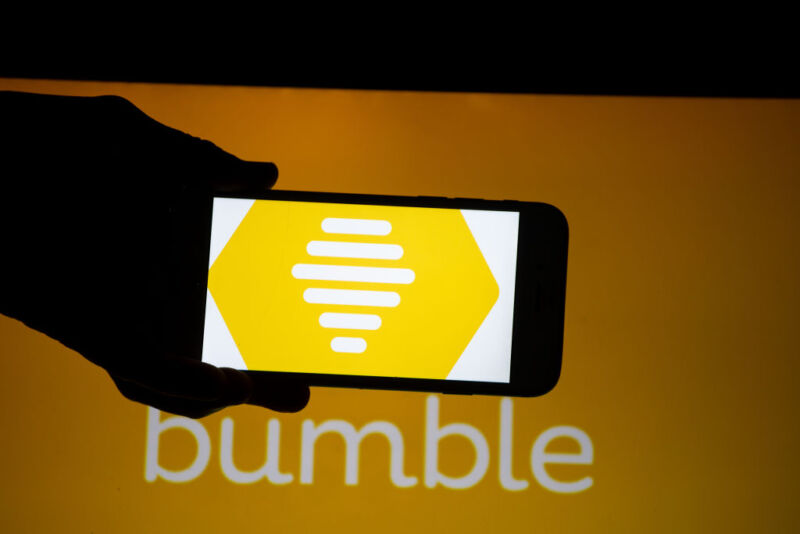
For the past decade, the dating app Bumble has claimed to be all about empowering women. But under a new CEO, Lidiane Jones, Bumble is now apologizing for a tone-deaf ad campaign that many users said seemed to channel incel ideology by telling women to stop denying sex.
“You know full well a vow of celibacy is not the answer,” one Bumble billboard seen in Los Angeles read. “Thou shalt not give up on dating and become a nun,” read another.
Bumble HQ
“We don’t have enough women on the app.”
“They’d rather be alone than deal with men.”
“Should we teach men to be better?”
“No, we should shame women so they come back to the app.”
“Yes! Let’s make them feel bad for choosing celibacy. Great idea!” pic.twitter.com/115zDdGKZo
— Arghavan Salles, MD, PhD (@arghavan_salles) May 14, 2024
Bumble intended these ads to bring “joy and humor,” the company said in an apology posted on Instagram after the backlash on social media began.
Some users threatened to delete their accounts, criticizing Bumble for ignoring religious or personal reasons for choosing celibacy. These reasons include preferring asexuality or sensibly abstaining from sex amid diminishing access to abortion nationwide.
Others accused Bumble of more shameful motives. On X (formerly Twitter), a user called UjuAnya posted that “Bumble’s main business model is selling men access to women,” since market analysts have reported that 76 percent of Bumble users are male.
“Bumble won’t alienate their primary customers (men) telling them to quit being shit,” UjuAnya posted on X. “They’ll run ads like this to make their product (women) ‘better’ and more available on their app for men.”
That account quote-tweeted an even more popular post with nearly 3 million views suggesting that Bumble needs to “fuck off and stop trying to shame women into coming back to the apps” instead of running “ads targeted at men telling them to be normal.”
One TikTok user, ItsNeetie, declared, “the Bumble reckoning is finally here.”
Bumble did not respond to Ars’ request to respond to these criticisms or verify user statistics.
In its apology, Bumble took responsibility for not living up to its “values” of “passionately” standing up for women and marginalized communities and defending “their right to fully exercise personal choice.” Admitting the ads were a “mistake” that “unintentionally” frustrated the dating community, the dating app responded to some of the user feedback:
Some of the perspectives we heard were from those who shared that celibacy is the only answer when reproductive rights are continuously restricted; from others for whom celibacy is a choice, one that we respect; and from the asexual community, for whom celibacy can have a particular meaning and importance, which should not be diminished. We are also aware that for many, celibacy may be brought on by harm or trauma.
Bumble’s pulled ads were part of a larger marketing campaign that at first seemed to resonate with its users. Created by the company’s in-house creative studio, according to AdAge, Bumble’s campaign attracted a lot of eyeballs by deleting Bumble’s entire Instagram feed and posting “cryptic messages” showing tired women in Renaissance-era paintings that alluded to the app’s rebrand.
In a press release, chief marketing officer Selby Drummond said that Bumble “wanted to take a fun, bold approach in celebrating the first chapter of our app’s evolution and remind women that our platform has been solving for their needs from the start.”
The dating app is increasingly investing in ads, AdAge reported, tripling investments from $8 million in 2022 to $24 million in 2023. These ads are seemingly meant to help Bumble recover after posting “a $1.9 million net loss last year,” CNN reported, following a dismal drop in its share price by 86 percent since its initial public offering in February 2021.
Bumble’s new CEO Jones told NBC News that younger users are dating less and that Bumble’s plan was to listen to users to find new ways to grow.